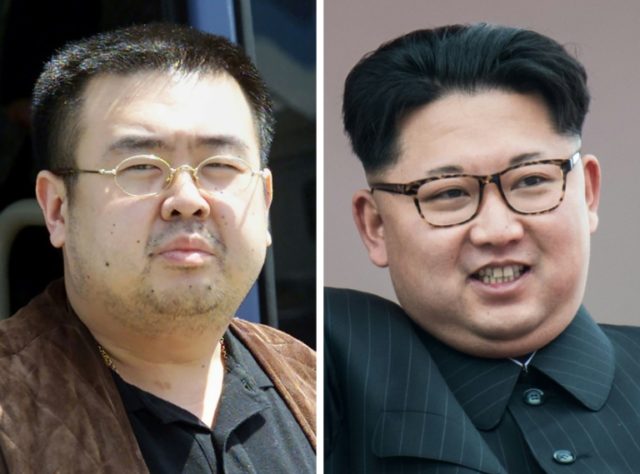Prime Minister Najib Razak of Malaysia has condemned North Korea’s diplomats to the country as “diplomatically rude” in the wake of the death of Kim Jong-nam, brother of dictator Kim Jong-un.
Kang Chol, North Korea’s ambassador to Malaysia, had issued a statement claiming Pyongyang could “not trust” the police investigation into Kim’s death and demanding Malaysia return the body to North Korea immediately.
“The statement by the ambassador was totally uncalled for. It was diplomatically rude. But Malaysia will stand firm,” Najib said in response to these remarks while speaking with reporters Tuesday.
While Najib’s statement is the most prominent rebuke of North Korea’s demands to take the investigation out of Malaysia’s hands, it is far from the only one. The president of the Malaysia Chinese Association, Liow Tiong Lai, issued a scathing rebuke to Kang’s dismissal of Malaysia’s law enforcement as unserious. “We view such accusations seriously. The Malaysian investigation is still under way and we have been very transparent. The ambassador cannot make baseless accusations against us,” he said on Tuesday. “It is nothing short of shocking. This is not the action befitting a diplomat.”
“We have a very experienced forensic team in the Health Ministry,” Health Minister Dr. S. Subramaniam told reporters after Kang announced North Korea would reject the results of any autopsy done under Malaysian government supervision. “It will be done in a professional manner, up to international standards and I don’t think any country should cast any doubts on our capacity to be professional.”
Kang Chol has led North Korean diplomats in a public barrage of disparaging remarks against Malaysia since Kim was found dead at Kuala Lumpur Airport on February 13. He most recently asserted that North Korea would “categorically reject” any autopsy by Malaysian authorities because Malaysia was allegedly colluding with South Korean officials to blame the Kim dictatorship for his brother’s death. Kang has also demanded that North Korean officials be part of the investigation.
“It has been seven days since the incident, but there is no clear evidence on the cause of death. At the moment, we cannot trust the investigation by the Malaysian police, even though it has yet to conclude,” Kang said this week, adding:
We hereby officially inform Malaysia and the international community that we suggest a joint investigation on this incident for clarification. If Malaysia agrees with our suggestion, we will dispatch a lawyers’ delegation which means (shows) our determination to clarify this incident via a joint investigation with Malaysian police.
Kang has accused the Malaysian government of having “something to conceal” on the matter and of “colluding and playing into the gallery of external forces.”
The South Korean Defense Ministry has accused Pyongyang of killing Kim Jong-nam, stating plainly in a report to the nation’s legislature, “Kim Jong-un is behind the killing.” It has called the claim of a conspiracy with Malaysia “preposterous and sophistic.”
Kim Jong-nam was found dead on February 13 while waiting to board a flight to Macau, where he spent much of his time in exile. Malaysian forensics experts have not found any evidence that he suffered cardiac arrest or any marks on his body that would indicate a struggle or any physical attack. Authorities currently believe, citing security camera footage, that a woman poisoned Kim by exposing him to either a toxic cloth, spray, or needle. The lack of a visible puncture wound appears to make the last of those possibilities the least likely.
Two women – Indonesian national Siti Aisyah and Vietnamese national Doan Thi Huong, have since been arrested in relation to Kim’s death.
Kim Jong-nam was the elder half-brother of dictator Kim Jong-un, said to have closer ties to China than his brother but largely uninterested in helping maintain his family’s power over the communist nation. Kim had publicly criticized “third-generation succession” and called himself a “totally capitalist kid” whom no one expected to succeed his father, Kim Jong-il.

COMMENTS
Please let us know if you're having issues with commenting.